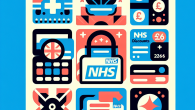
Intro to Side Hustles: Small Ways I Made Extra Cash in Tech
Understanding Money: A Beginner’s Guide to Not Freaking Out About Your Finances
Hey there! I’m Tom Bradley — but you can call me Tom. I’m your slightly sarcastic, coffee-fueled finance buddy who’s been there, done that, and probably maxed out a credit card or two along the way. Today, I’m here to walk you through something that sounds boring… but trust me, it’s the opposite: understanding your relationship with money.
If you’ve ever stared at your bank app and muttered, “Where did all my money go?”, buckle in. We’re about to get your financial life sorted, one friendly step at a time.
What Money Really Is (And No, It’s Not Just Paper)
Let’s start with the basics. Money is a tool. That’s it. It’s not your self-worth. It’s not a reason to stress endlessly. It’s simply a tool we use to trade value. And just like using a hammer, you can either build something smart — or smash your thumb.
In today’s world, money comes in different forms:
- Physical cash — the stuff in your wallet (remember wallets?)
- Credit — borrowed money with strings attached
- Digital money — your checking account, Venmo balance, etc.
- Assets — like stocks, real estate, or that rare Pokémon card collection you never told anyone about
Get comfortable with the idea that money is fluid. It moves. You earn it, spend it, invest it, and (hopefully) grow it.
Why Most People Struggle With Money (Hint: It’s Not Math)
Here’s the truth: most people don’t struggle with money because they can’t do arithmetic. They struggle because their mindset is off. Fear, guilt, confusion, and instant gratification are the usual suspects.
So if you’ve been dodging your budget like a Monday morning meeting, you’re not alone. We just need to unlearn some bad habits and rebuild from the ground up.
The Usual Money Mistakes Beginners Make
Let’s detox a bit. Here are some classic rookie errors — and how to avoid them:
- Living paycheck to paycheck: You make money, you spend it, repeat. The fix? Start tracking your expenses and building a budget that makes sense for your lifestyle.
- Credit card chaos: Swiping like there’s no tomorrow leads straight to debt quicksand. Know your limit — and stay lightyears below it.
- No emergency fund: Life happens. Your car breaks down. Your cat needs surgery. Be ready — aim to save at least $1,000 to start.
- Confusing wants with needs: Spoiler alert: daily lattes are not a “need.” Learn to tell the difference — and yes, it’s hard. I’ve been there.
The Golden Rule: Spend Less Than You Earn
Are you ready for the ultimate financial life hack? Here it comes — drumroll, please: spend less than you earn. That’s it. That’s the foundation of financial peace.
Let’s do some simple Tom Math™:
If you earn $2,000/month and spend $1,800, you’ve got $200 to save, invest, or reward yourself. If you earn $2,000 and spend $2,200… well, that math ends in overdraft fees and heartache.
Get smart with your cash flow. And before you stress, no, you don’t need to sacrifice all joy. Just pick your battles (and your purchases) wisely.
Budgeting Doesn’t Have to Suck
Look, I get it. Budgeting sounds like a spreadsheet party you didn’t want an invite to. But it’s actually the first step in taking control.
How to Build an Easy Starter Budget
- Write down everything you earn monthly. That includes side gigs, tips, anything.
- List all your regular expenses. And I mean everything: rent, gas, takeout, Netflix, late-night Amazon regrets.
- Break them into categories:
- Essentials: rent, food, bills
- Variable: transport, dining out
- Fun stuff: hobbies, entertainment
- Allocate your income: Use the 50/30/20 rule to start:
- 50% needs
- 30% wants
- 20% savings/debt payments
Pro Tip: There are apps for this. I like using tools that do the math for me and send push notifications when I try to buy a $300 gadget at 2am.
Saving Isn’t Just for Rich People
One of the biggest lies out there? “I’ll start saving when I make more money.” Don’t fall for that trap. It’s not about the amount — it’s about the habit.
Simple Ways to Start Saving Now
- Set up auto-transfer to a savings account every payday (even $10 counts)
- Use cash-back apps or loyalty points and stash the savings
- Try a “no-spend” day once a week and save what you didn’t spend
Imagine building your saving muscle now, so later it’s second nature. Be the person who has money ready when opportunity — or disaster — knocks.
Let’s Talk Goals (Not Just Retirement and Yachts)
Having financial goals gives your money a purpose. Otherwise, it just sort of… evaporates. You don’t need to plan your whole life today, but set some short and mid-term targets.
Examples of Realistic Money Goals
- Save $500 for holiday gifts
- Pay off your smallest credit card balance in 3 months
- Build a 3-month emergency fund
- Start investing $50/month into a retirement account
Write these goals down. Tape them to your fridge. Brag to your dog. Whatever helps!
Final Thoughts From Your Finance Buddy Tom
Hey, I know this has been a lot — but I’m proud of you. Taking the time to read this means you’re serious about improving your money game. And the truth is, understanding money isn’t about being perfect — it’s about being consistent.
So here’s what I want you to remember:
- Money is a tool, not a stress-inducing demon
- You don’t need a finance degree to start budgeting
- Start small, stay consistent — the rest builds over time
Need help or got questions? Reach out through our contact page — I read every message (coffee in hand).
Keep learning. Keep laughing. Keep saving. You got this.









Leave a Reply